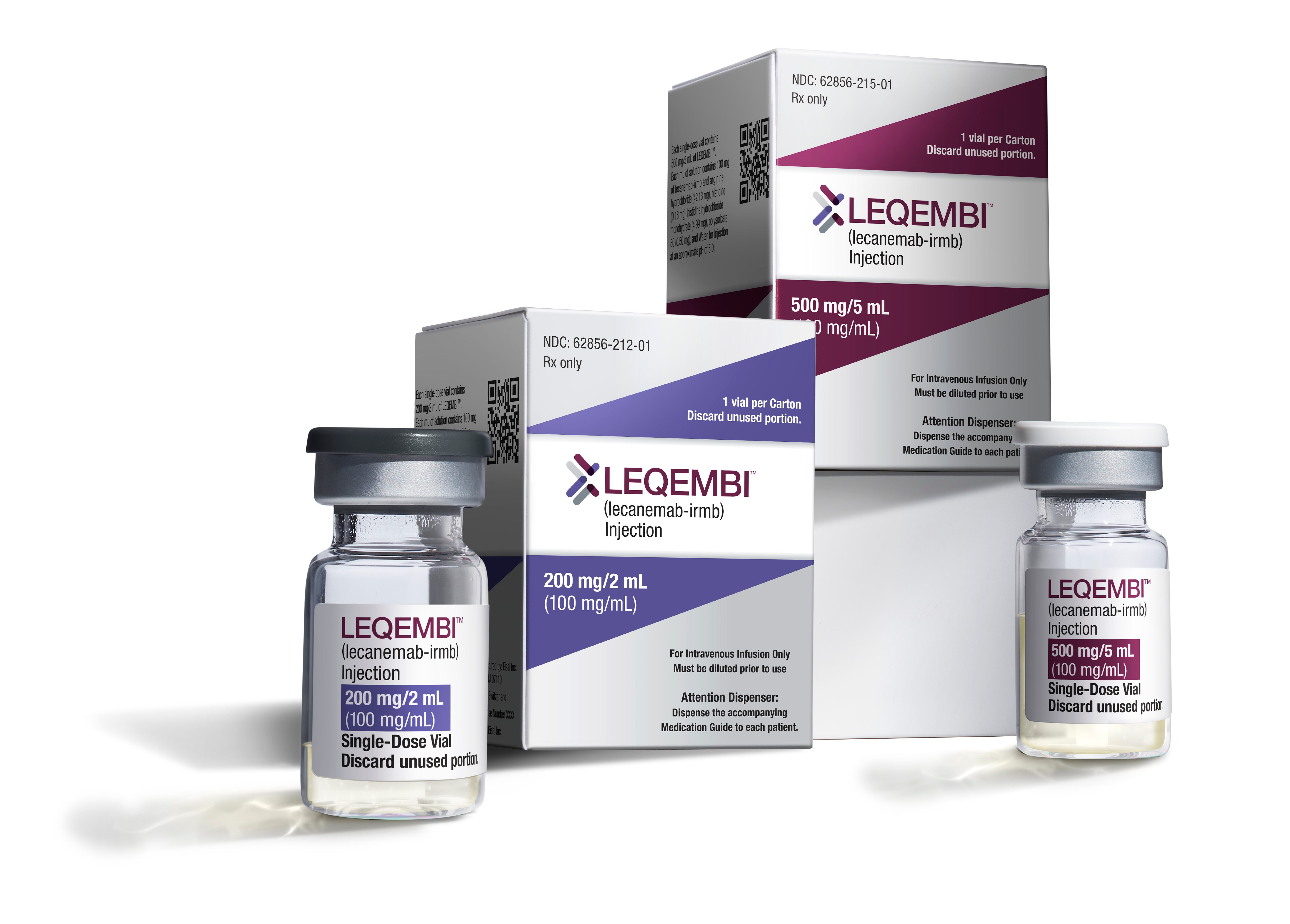Alzheimer's drug gets FDA panel's backing, setting the stage for broader use
U.S. health advisers are backing the full approval of an Alzheimer's drug that received preliminary approval last year

Health advisers on Friday unanimously backed the full approval of a closely watched Alzheimer’s drug, a key step toward opening insurance coverage to U.S. seniors with early stages of the brain-robbing disease.
The drug, Leqembi, received conditional approva l from the Food and Drug Administration in January based on early results suggesting it could slow Alzheimer's progression by several months. The FDA now is reviewing more definitive results to decide whether the drug should receive the agency’s full endorsement.
The decision carries extra significance because insurers have held off on paying for the infused treatment until it has full FDA approval.
The FDA panel of outside advisers voted 6-0 that a large company study confirmed the drug's benefits for patients with mild or early Alzheimer's. The nonbinding vote amounts to a recommendation for full approval, and the FDA is scheduled to issue a final decision on the matter by July 6.
The FDA’s initial OK for Leqembi came via the agency’s accelerated approval program, which allows early access to drugs based on laboratory and biological measures suggesting that they might help patients. The drug, marketed by Eisai and Biogen, helped clear a brain plaque that is a hallmark of Alzheimer’s.
The FDA panel reviewed more recent data from an 1,800-patient study in which people taking the drug showed a modestly slower rate of decline on measures of memory, judgment and other cognitive tests.
“For an illness like this where we don’t have very much, these are meaningful changes for patients with Alzheimer’s,” said Dr. Merit Cudkowicz of Harvard Medical School. “A couple more months in the highly functional state is really meaningful.”
Drugs approved via the accelerated pathway can technically be withdrawn by the FDA if their benefits aren't confirmed, though regulators rarely take that step. Gaining full approval allows medications to stay on the market indefinitely.
Normally the process of converting an accelerated approval attracts little attention, and FDA rarely convenes its advisers to weigh in on such decisions.
But concerns about the cost and effectiveness of new plaque-targeting drugs like Leqembi have attracted new scrutiny to the process from academics, members of Congress and health insurers.
Medicare, the federal health plan that covers 60 million seniors, has essentially blocked coverage of Leqembi and a similar drug, Aduhelm, pending full FDA approval. That policy, which has little precedent, was announced last year amid concerns that Aduhelm, priced at $28,000-a-year, would drive up costs for Medicare recipients.
The federal program provides health insurance for the vast majority of people with Alzheimer’s, and private insurers tend to follow its lead.
Leqembi is priced similarly at $26,500 per year and the handful of patients who have received it to date have mainly had to pay out of pocket.
Facing pressure from Alzheimer’s advocates and patients, Medicare’s administrator, Chiquita Brooks-LaSure, has made clear the program will immediately begin covering the drug if it gets FDA’s full OK.
But last week she announced extra requirements even after Medicare coverage begins: All patients receiving the drug will need to be enrolled in a federal registry to track Leqembi's safety and effectiveness. That approach is occasionally used for complex new medical devices, but rarely for drugs.
The move was criticized by advocacy groups, including the Alzheimer’s Association, which has lobbied the federal government for months to begin paying a drug that they say could potentially help many thousands of Americans.
Leqembi is the first drug that’s been convincingly shown to slow Alzheimer’s by targeting the underlying biology of the disease. The delay in progression amounts to about five months, and some experts disagree on whether the difference is enough to meaningfully improve people's lives.
But most FDA panelists were impressed by Eisai's results, which they said showed significant differences in patients' cognitive abilities and function, as well as reduced burden for caregivers.
The study, funded by Japanese drugmaker Eisai, tracked patients for 18 months using a scale measuring key indicators of cognitive function. At the end of the trial, patients receiving Leqembi declined more slowly — a difference of less than half a point on the scale — than patients who received a dummy infusion.
The drug was also associated with potentially serious side effects, including swelling of the brain and small bleeds in brain vessels.
Three patients taking Leqembi died during the study, two after experiencing a stroke linked to brain bleeding. But FDA reviewers said it was unclear whether the drug played a role in the deaths due to other underlying factors affecting the patients, including the use of blood-thinning medications that can increase the risk of bleeding.
“There are adverse effects,” said Dr. Robert Alexander of the University of Arizona, who chaired the panel. “But they're monitorable and I think the benefit is clear.”
___
The Associated Press Health and Science Department receives support from the Howard Hughes Medical Institute’s Science and Educational Media Group. The AP is solely responsible for all content.
Bookmark popover
Removed from bookmarks